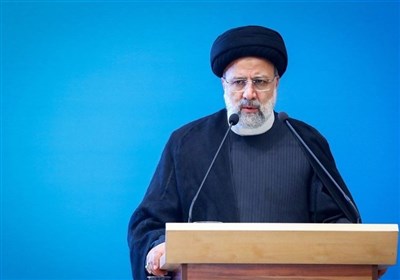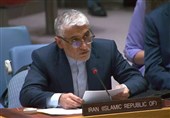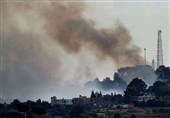Enemies at The Gate – Why Saudi Arabia Needs Yemen to Erect Its Wahhabist Empire
TEHRAN (Tasnim) – With so many eyes locked on Aleppo, it is unlikely mainstream will identify Yemen as the next war theater, and pending grand battle against Wahhabist Saudi Arabia – and yet it is Southern Arabia which will determine how the kingdom’s ambitions will either rise or implode.
For all the violence and, one must add rage, Wahhabism unleashed against both Syria and Iraq, on account it ambitioned to expand its reach by exploding such principles as sovereignty and nationalism, Yemen was always the end-game, the one foundation Saudi Arabia would have to lean to manifest its hegemonic ambitions and build its empire.
I would personally argue that Syria and Iraq were fought so that none would come to Yemen’s aid - a deflection of sort so that the world would look away and allow for Yemen to be burnt under engineered apathy. We ought to realise that for all the horrors which have shaken the Greater Levant region, Yemen will be where the fate of Arabia will be decided.
The very construct of war in both Iraq and Syria has de facto left Yemen an orphan. With Russia and Iran so heavily invested in Syria for example, Sana’a was left to defend its own integrity without the support it might have commandeered otherwise.
It is often that military strategists draw their enemies away from the real war theatre as to gain the upper-hand. It is only logical we ponder over such a possibility.
For all its poverty, chronic mis-management and pandemic under-development issues Yemen sits still a geopolitical jewel, a regional heavy weight should it be offered the courtesy of its natural resources. Sitting atop the World Oil Route, Yemen holds within its hands much of the future of the region by its geography alone.
It is to assert its hold over Arabia that Saudi Arabia declared war on Yemen’s Resistance Movement, and under a brutal air campaign worked to disappear its institutions. It is so Yemen would never rise from its ashes that the kingdom has thrown itself in a vengeful genocidal campaign – that, and of course the visceral fear al-Saud harbours that Shiite Islam would come to challenge Wahhabism’s claim over the Islamic world.
Sectarianism it needs to be said has been wielded as a powerful asymmetrical weapon of war, whereby communities have been labelled as apostate so that their claim to democracy and territorial sovereignty could be shun by the powers that be – Western powers and their Wahhabist allies.
Until Wahhabism developed a power-house over the Hijaz, sectarianism was not an Islamic reality, rather an aberration denounced by both Sunni and Shiite Islam. It is Wahhabism which came to define the Islamic world in division and exclusion. Maybe we ought to look into history to find where it is that we all faltered.
It is our inability to see through political manipulations which has allowed Riyadh to establish itself a tyrant over Yemen – suffocating an entire people so that it would renounce its sovereign rights and allow for its inheritance to be bartered at al-Saud table.
Without Yemen as its anchor, the kingdom will not withstand the test of time – especially now that nations across the Middle East have spoken against imperialism and foreign powers diktat.
As Aleppo rejoiced its well-fought liberation from the Black Flag Army I would caution that the real battle for Arabia has only just begun.
With Wahhabism on the run, Saudi Arabia will likely throw its entire weight into Yemen to secure the one victory it so absolutely depends on to erect its empire. Without Yemen, Riyadh remains a kingdom in isolation and in a financial dire straight.
Ironically it is Yemen’s war most of all that has emptied al-Saud’s coffers and essentially precipitated its demise.
With a reported $54 billion annual deficit, one has to ponder over the strength of those friendships the kingdom has entertained over the years. How many of its allies will answer al-Saud’s call when cheque books have run dry and gold lost its lustre?
By Catherine Shakdam for Tasnim News Agency
Shakdam is an expert commentator, political consultant, and the director of Shafaqna Institute for Middle Eastern studies in London. A regular pundit on news networks, Shakdam’s writings have appeared in major publications across the world, like Foreign Policy Association, MintPress News and the Guardian.





